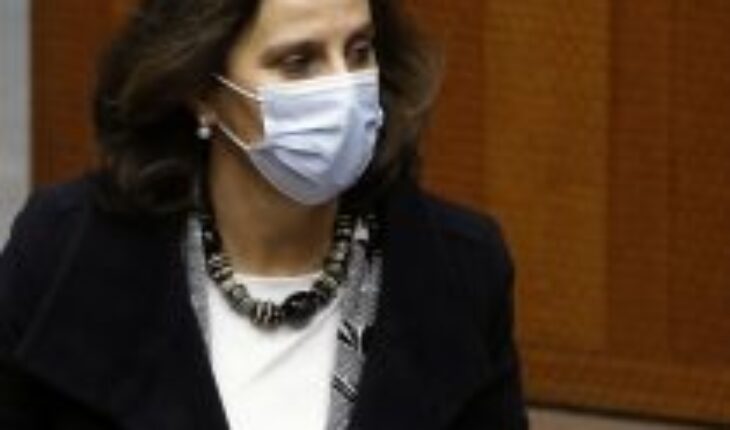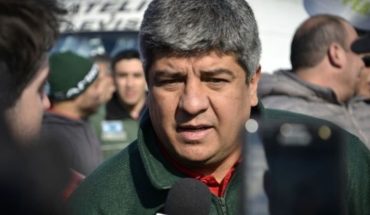Days ago, I mentioned my discomfort with the foreign ministry’s press releases’ emphasis on what I called “new/other issues,” rather than focusing on more “traditional” international relations. I hope to be clear: I support the signing of the Escazú Agreement, the interest in the environment and climate change; feminist foreign policy and the appointment of ambassadors; the defence of human rights and inclusiveness; as well as topics related to science and technology, just to mention some of the “new topics” in which we work. However, at present we have a Foreign Ministry that seems overloaded with these “new issues”, to the detriment of the more “traditional” ones. In the OECD, many “chancelleries” have already incorporated them, but they have also strengthened their more traditional areas of work. Let us support the Foreign Ministry and leave the international projection of the new issues to the international teams of the respective ministries. “Shoemaker to your shoes.” Do you understand?
The Foreign Ministry is responsible for conducting Chile’s international political and economic relations. Let us not lose focus or direction of our foreign policy. Today, the global agenda is dominated by the “fracture” suffered by globalization, marked by the crisis caused by COVID, the war in Ukraine, and the effects of the climate crisis, as well as the rearticulation of global production and marketing networks. And do we have a Foreign Ministry that is up to the task?
We know of the president’s trip to North America to attend the Ninth Summit of the Americas. But, as of this writing, I have not been able to find out what we are going to the Summit for. Maybe I’m ineffective. The most detailed I have found is a Press Release from the Foreign Ministry, dated May 30 (but, in fact, dated June 30), reporting that “… Today, Foreign Minister Antonia Urrejola held a call with the Minister of Foreign Affairs of Canada, Mélanie Joly. In the instance, they had the opportunity to discuss the next tour that the President of the Republic, Gabriel Boric, will make through North America, as well as to address various points of common work.” I searched unsuccessfully for some of those possible “common work points.” Zero.
However, on Saturday 28, “flipping through” El Mercurio, I found an interview with Chris Dodd (former Democratic senator) who today holds the title of “Special Advisor for the Summit of the Americas”. According to the media, Dodd was in Chile to meet with Minister Urrejola. And the Foreign Ministry, “mutis for the forum”. Interesting interview and that El Mercurio presents with the suggestive headline of “If I had to choose only one topic about collaborating with Chile, it is democracy”. It is evident that the “special envoy” came to make a scratch of the field, deal with the issue of Cuba, Nicaragua and Venezuela, and ensure our visit to the Summit, possibly in exchange for guaranteeing us a “bilateral” with President Biden. It is clear to me that the Foreign Ministry must not “air” left and right the details of our foreign policy. Here I am only asking to be informed of what the objectives of our participation in the Summit are, what they are asking of us and what we hope to achieve. On Tuesday 31, I came across an interview made -that night- to Minister Urrejola (T13 Night) where she mentions the previous visit of Chris Dodd.
The government has told us that we belong to Latin America and the Caribbean: that it is our neighborhood. And the President reiterates it in the Public Account, but we do not know what we will talk to them at the Summit of the Americas. Fortunately, the U.S. Department of State – organizer of the event – tells us that its motto is “Building a sustainable, resilient and equitable future for our hemisphere”… [para más adelante señalar que] “… The peoples of the Americas want, and deserve, effective and accountable governance that fulfills its mission.” The State Department concludes with the main themes of the call: “As president and host, the United States will work with stakeholders in the region to ensure leadership-level commitments and concrete actions that dramatically improve response and resilience to the pandemic, foster an ecological and equitable recovery, build strong and inclusive democracies, and address the root causes of irregular migration. Our commitment to diversity and inclusion will underpin our efforts.”
So far I see no major difficulties. However, I think that Chile is complicated by “the map” with the parallel agenda that -obviously- the US does not make public completely, but that slides in the interview with El Mercurio. Remember Chris Dodd’s concern to collaborate with Chile… [y…] democracy.” But where I have the firm impression that we are going to “read the primer” very clearly, is in relation – worth the redundancy – to our relationship with Russia and China. In a May 26 speech, Secretary of State Antony Blinken presents with overwhelming clarity the strategic axes of U.S. foreign policy (“The Administration’s Approach to the People’s Republic of China”) which, in short, articulates them as: “… As President Putin’s war continues, we will continue to focus on the greatest long-term challenge facing the international order, which is represented by the People’s Republic of China.” And he concludes this section of the speech by noting that “… China is the only country on the globe that has both the interest and – increasingly – the economic, diplomatic, military and technological power to modify the international order” (My translation and emphasis).
So far nothing new, but Secretary Blinken illustrates very clearly, in his speech, that they will not let this happen, and illustrates the “alliances” that they are redesigning and strengthening for it. Interestingly, in relation to the strategy used by China, it makes references to several issues that “go beyond the grain”, such as “appropriating” strategic areas of the economy through the investment and use of technologies designed in China and controlled by them. Lithium and high-speed trains: does it remind you of anything? For now, my concern is whether we are ready to talk about the “parallel agenda”. I have the impression that we are not. Clearly U.S. global geopolitical interests are being challenged. And also in Latin America, and China is “touching the ear” very often to the United States. How will we respond to the need to protect our national interests and belonging to the neighborhood of Latin America? Will we continue to run with “colors of our own”? Will we seek to clarify our belonging to Latin America to face these new global challenges together? I play for this option.
Nor do we have any information about what Minister Urrejola may have discussed with her Canadian colleague. It is a positive gesture that we extend our diplomatic efforts to Canada. There are close ties with Chile, but make no mistake, its priorities are in other regions of the globe. Geopolitically, Canada always tries to maintain a degree of independence, but ends up aligned with the United States. However, we can learn from Canada in many areas: for example, from its health system, environment, public education and all the work done with the native peoples, to try to repair the past imposed by the conquerors, just to name a few.
But where the greatest wealth of a possible new relationship with Canada lies, is in the provinces. If the President visits Canada, I suggest that he include Minister Valenzuela in the entourage, so that he can tour the provinces and see what is required to be a true “Food Power” and thus dream of Food Security and Sovereignty, which seem to be the “top” issues of Agriculture these days. I suggest visiting the Crop Development Centre at the University of Saskatchewan, Saskatoon. In addition to enjoying the enormous hospitality of Canadians, you will be able to know the place where “Canada as the largest exporter of pulses in the world” was born. And not so long ago. A part of the lentils that we consume today in Chile, come from Saskatchewan. And the origin of those lentils is the ancient Chilean lentil seed. Ta’ güeno, minister? It can be a fruitful relationship. Beyond the Federal Government of Canada, in the Canadian provinces there is a huge treasure to explore.
I return to the central point of this column: do we know what we will go to North America and the Summit of the Americas? After reviewing in detail the information available at the State Department, interviewing Chris Dodd, and studying Secretary Blinken’s speech, I believe that the United States has complete clarity of what it wants and hopes to achieve, both in the friendly and politically correct official agenda and in the parallel agenda of the “bilateral” ones. Do they know it in the Foreign Ministry? The United States has already been honest and put its cards on the table. What about us? It will not be easy and, moreover, it seems that we are limping.
Follow us on
The content expressed in this opinion column is the sole responsibility of its author, and does not necessarily reflect the editorial line or position of El Mostrador.





